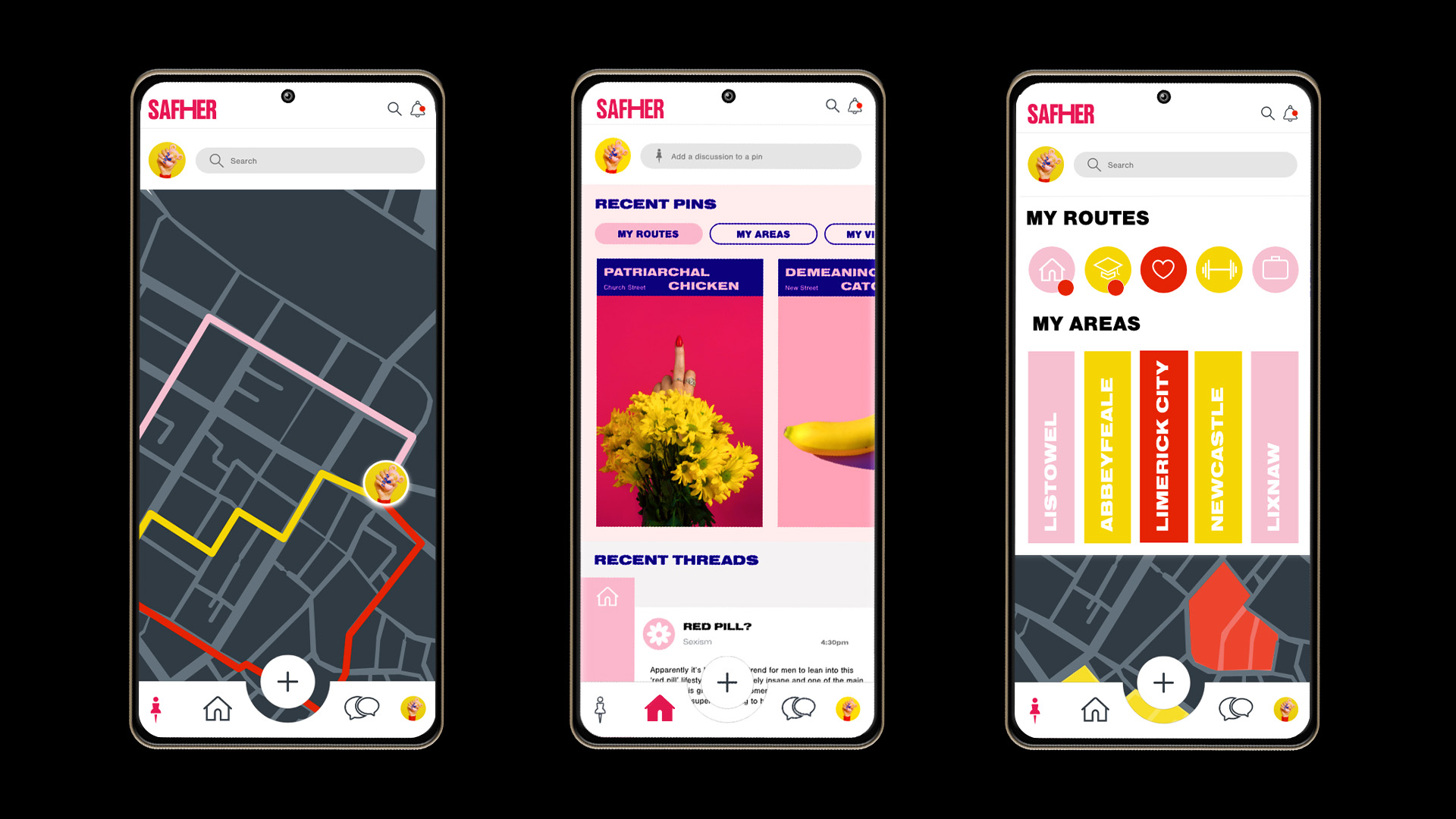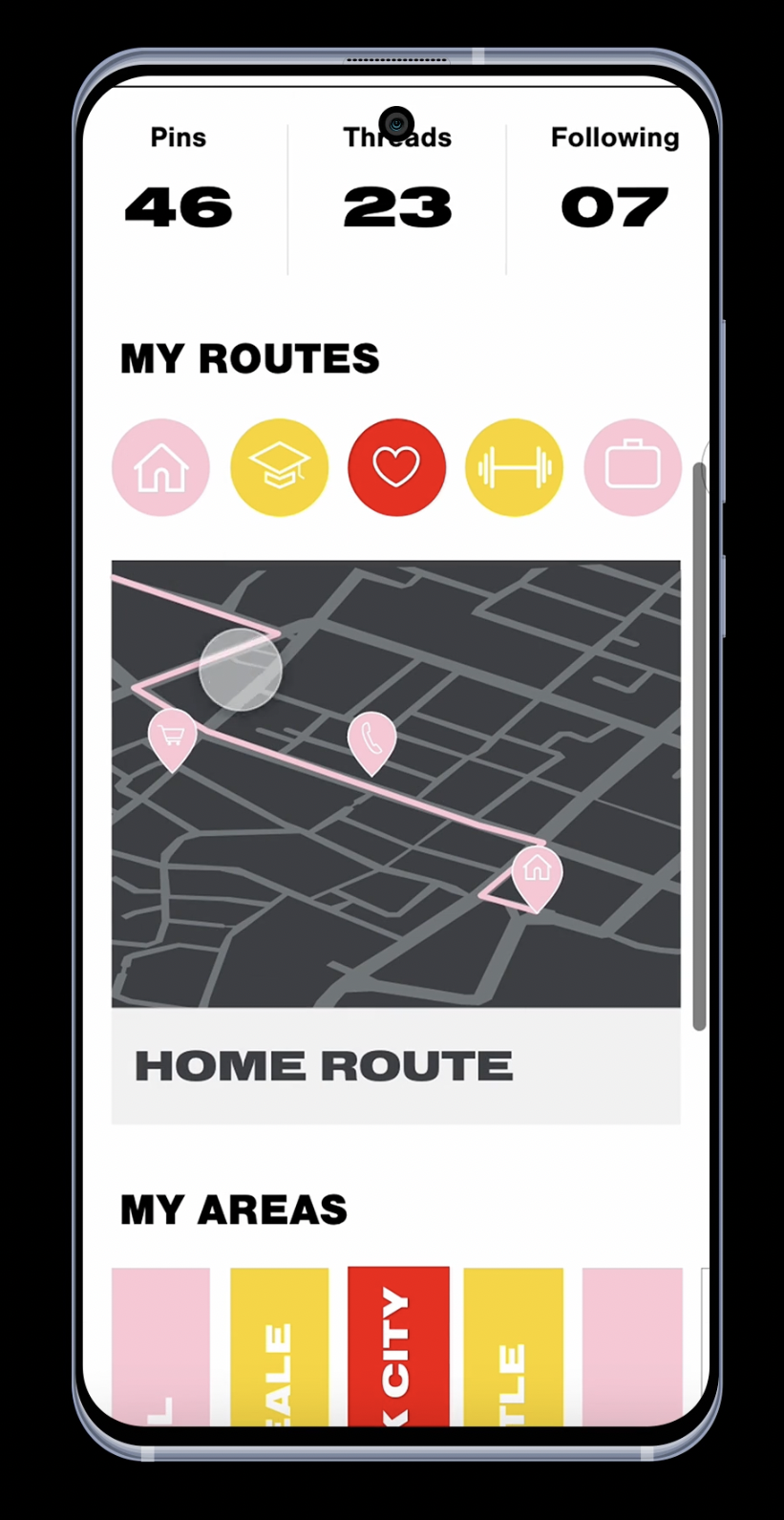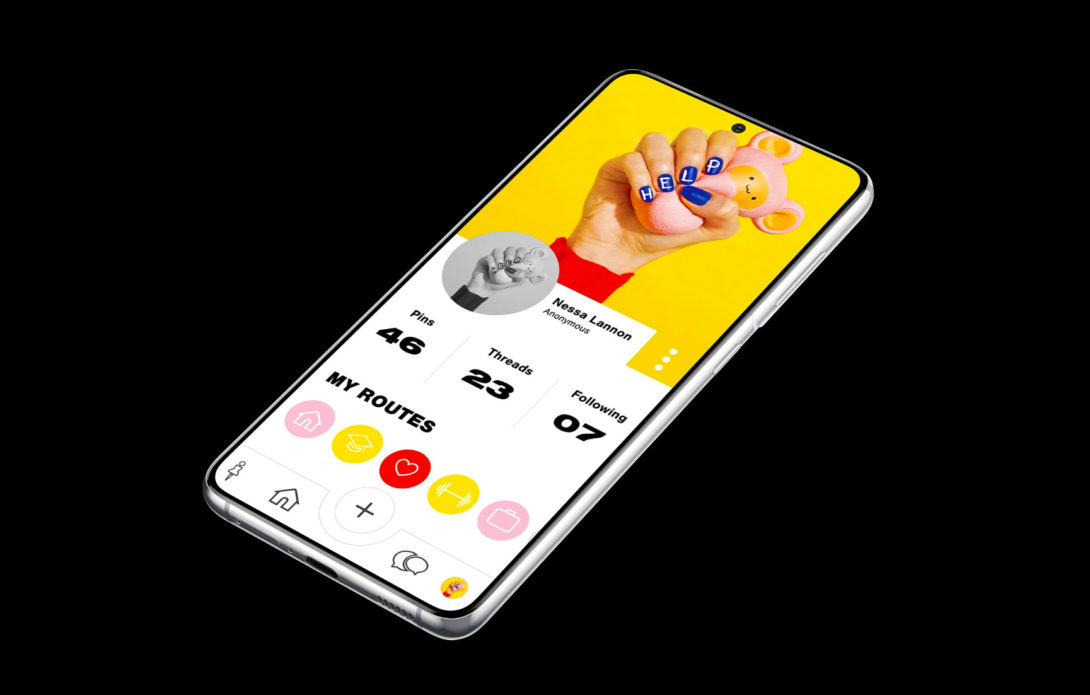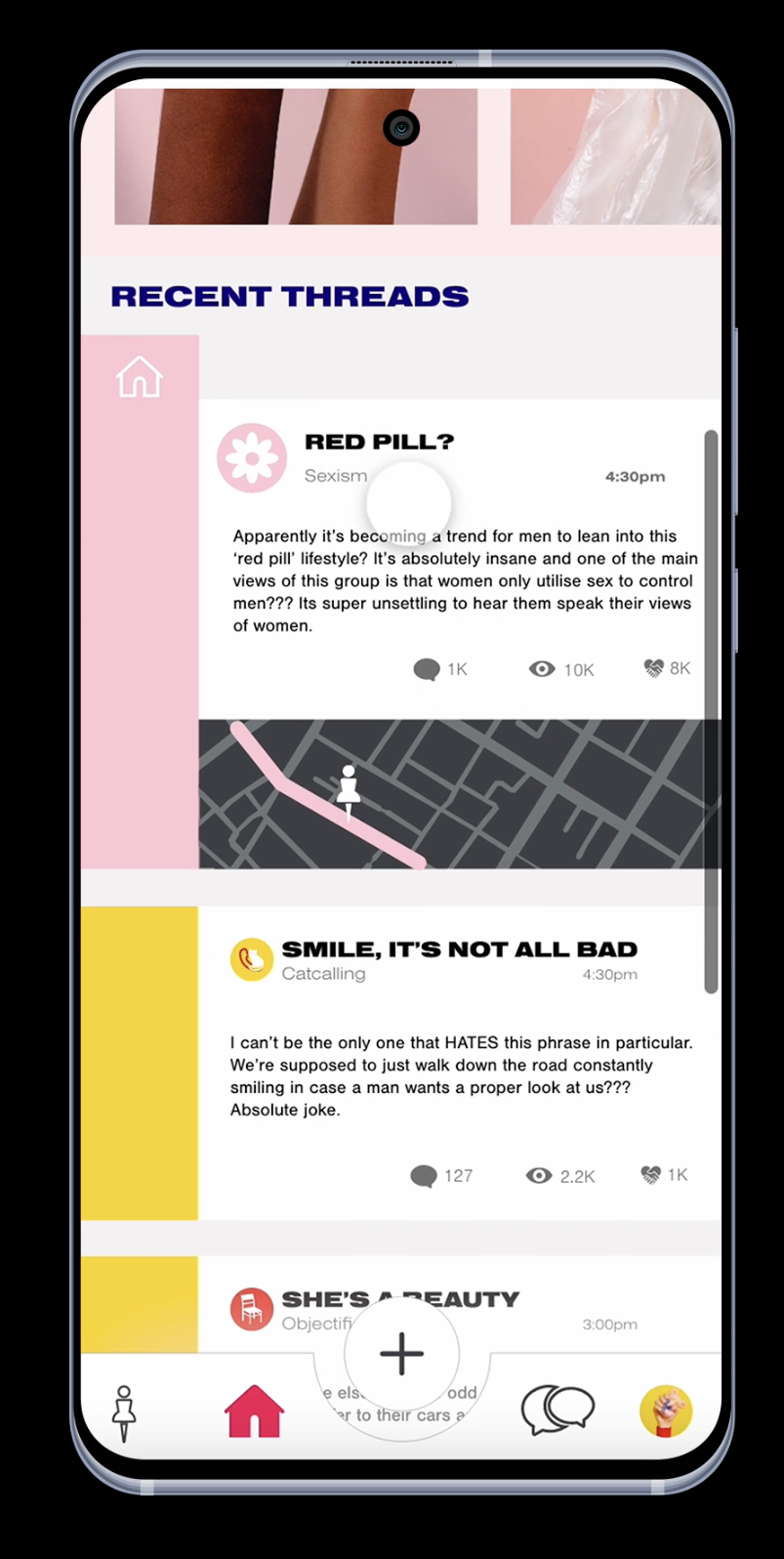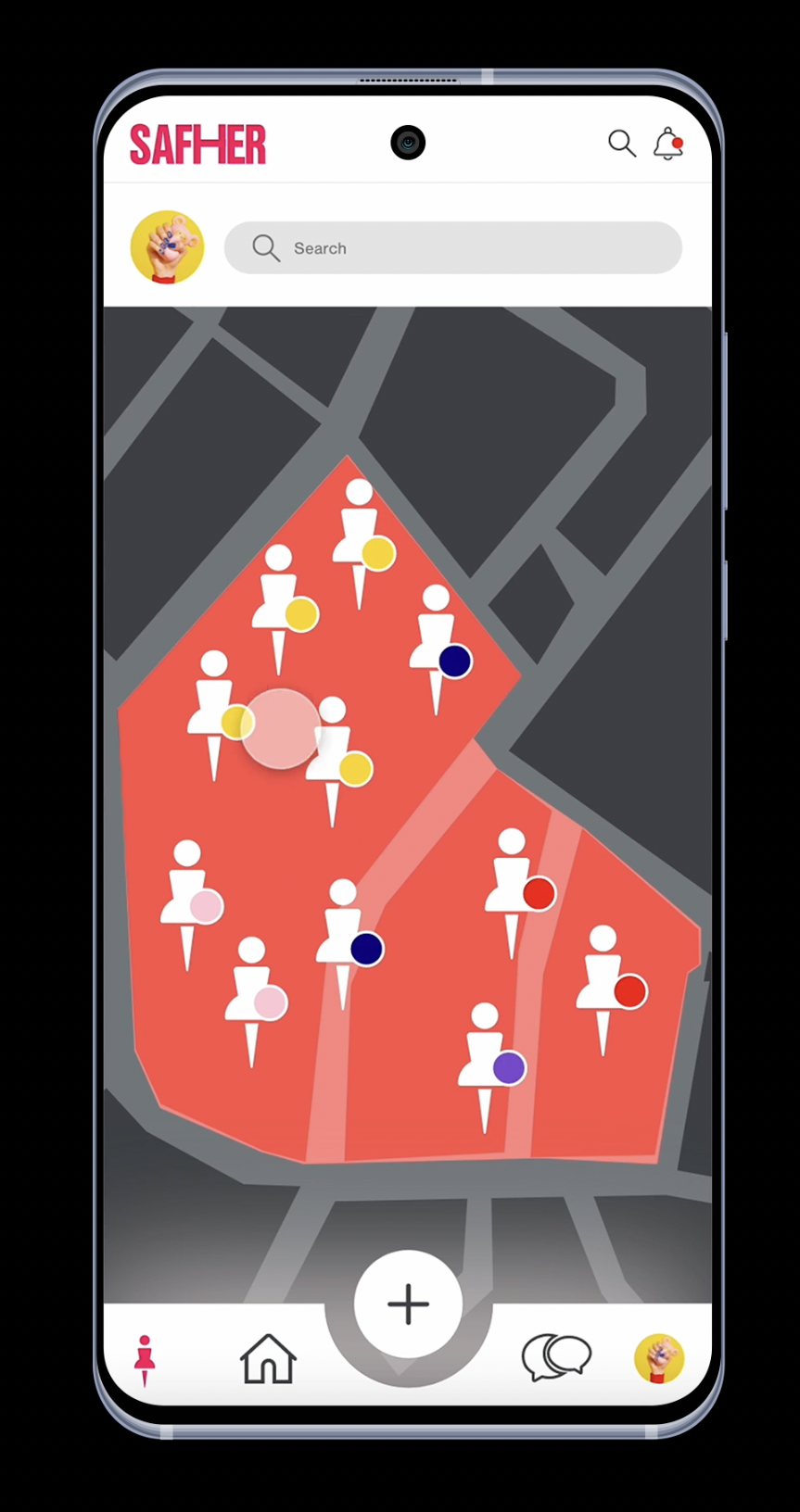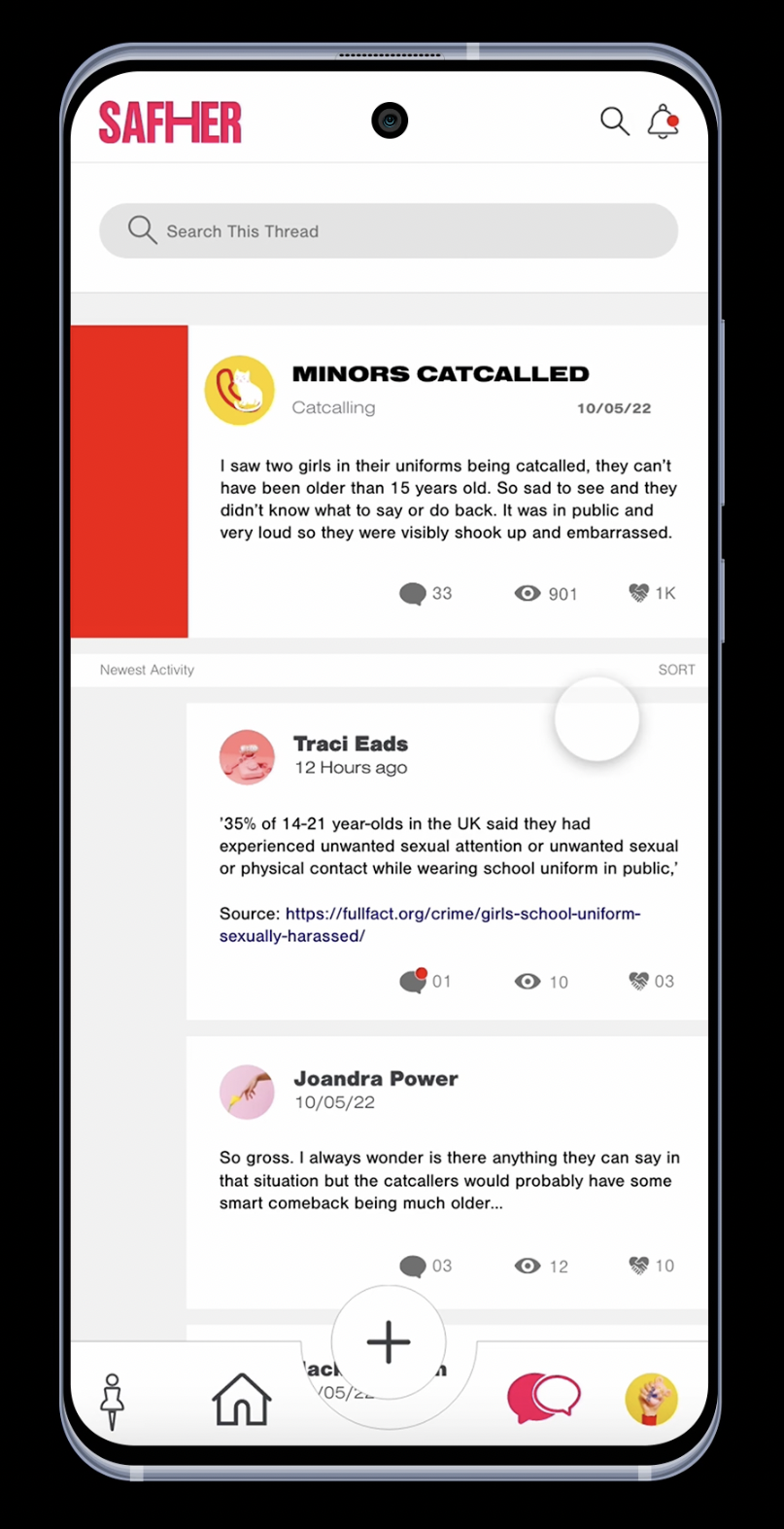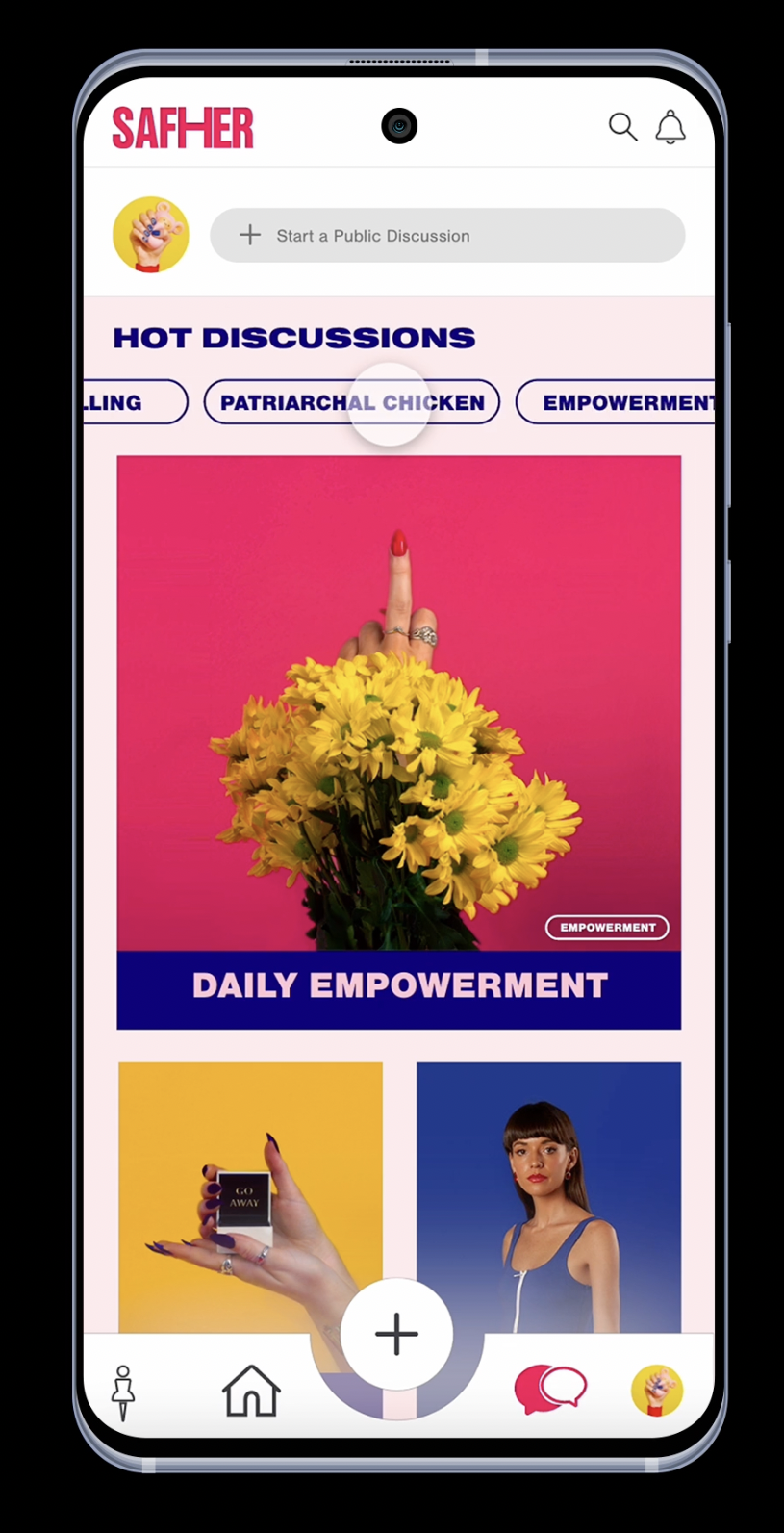About the project
Safher is an application designed for women’s safety in public spaces. Safher utilises Google Maps’ existing data to curate which routes are safest for women and portrays this to the user on a visual colour scale. By using Google’s pre-existing route and time scheduling data, women in unfamiliar areas of the world can be safer when travelling through new places. Google owns all this information but does not collate the data together in one space in order to evaluate safety. Google Maps focuses on the quickest route, Safher focuses on the safest route.
Not only does the app use Google’s data but also data provided by the users. Women can drop pins in areas they experienced gender based micro-aggressions and are presented with the option to open a discussion thread of their experience. This allows local women to leave virtual messages and warnings for others who are new to the area. Through the discussion threads a cathartic experience can be offered to affected women, dually a platform to educate, empower and encourage one another is created. Integrity is key to the application as threads are moderated, user identities are validated and accuracy of reporting is considered.
Through research it was discovered that a pattern of microaggressions take place before an act of gender based violence occurs. In order to create a somewhat preventative measure against gender based violence, Safher was created. Safher provides a platform to track areas microaggressions most commonly take place and as a result, areas where one’s safety may end up being compromised. The interface itself is designed in an unorthodox aesthetic and visual language then one would typically expect of a navigation application. This was purposefully crafted in order to attract our target audience; young women starting to find themselves and becoming accustomed to the world around them.
About Safher’s approach
The application would be free to use for women all over the world. The UI takes error into account as it automatically reroutes users to a safer route if the user takes a ‘red’ path. The UI utilises large components; this was to aid people with visual impairment, low vision, or trouble with using phone screens. The data is accessible as it is the users (members of the public) who submit the gps pins of areas where they experienced microaggressions.
The app was created through research of documents, thesis’ and psychological profiles. Interviews and surveys also took place with women who have experienced microaggressions. The app relies on the local community to help track areas where microaggressions take place. Users can drop a pin and use one of the tags (icons) which link the gps pin to the type of microaggression experienced eg. cat calling. Users are also presented with the option to open a discussion thread surrounding their experience. All users identities are validated upon sign up to the app; this is to ensure trustworthiness of the users. Users can then switch their profile to be viewed as ‘anonymous’ by other users to protect their identity and where they are active.
Google maps already exists and is a key piece of technology used globally however it was noted by women that often times through Google automatically using the quickest route they were lead into areas they felt uncomfortable or would have rather avoided. Women in unfamiliar areas of the world rely on apps such as Google Maps to get where they need to go but unfortunately Google does not account for local areas or spots known to be dangerous or unfriendly. Safher builds on the technology by taking humanity and social consciousness into account.
The aim of this design is to build a more socially conscious navigation application not only through its deliverables but also through the communities it will ignite. Women will be able to track areas they have experienced microaggressions and as a result they are now given a platform where they can warn other women efficiently and effectively to protect others from what they unfortunately experienced. It gives women the opportunity to protect others. It will also form a tight knit community of active individuals who give and share advice through the discussion threads. In the research phase many women felt when they had experienced something they needed to talk to someone about it – the discussion threads give a place for this cathartic experience while simultaneously educating, empowering and encouraging women.
About the designer
My name is Janine. I am a hardworking, imaginative individual with a consistent need to feel creatively fulfilled and mentally stimulated. I’m an ambitious designer (and art director) that holds great passion for my projects and a drive for success. In my own time I enjoy utilising colour and composition to create minimalist, directed shots injected with symbolism and metaphors. These pieces often portray opinions and make way for social investigations. I graduated from the Limerick School of Art and Design, Ireland in 2022 and have been continually working on designing for good. Good design is design for good 🙂

